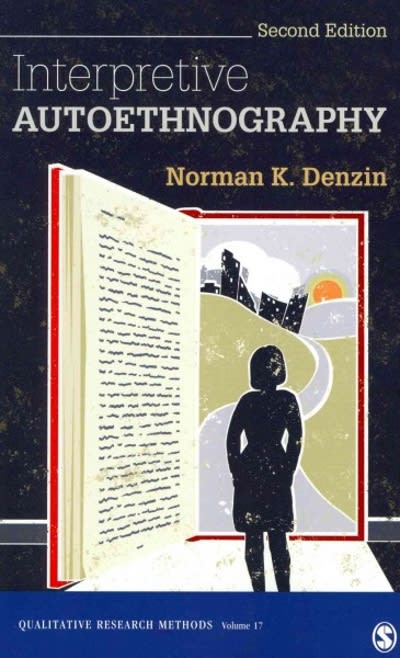Question
Case Study 1 Cho, the counselor, is a 40-year-old Asian American male. He is deeply rooted in his cultural values and has recently opened a
Case Study 1
Cho, the counselor, is a 40-year-old Asian American male. He is deeply rooted in his cultural values and has recently opened a private practice in a diverse upscale neighborhood. He is not married and has no children.
Talia, a 30-year-old Latina female comes to Cho for counseling. She is depressed and feels like there is little meaning in life and feels that she lacks identity outside of being a wife and mother of 2 small children. Cho inquired about any recent events that may have contributed do Talia's current presenting issues. Talia described her desire to return to school and pursue her own career. She explained that she discussed her desires and feelings of being stifled with her husband who reminded her of her responsibilities to the family. Her husband threatened to leave her if she continued with her plans to return to school. After feeling discouraged by the conversation, Talia spoke with her pastor, who further pointed out the obligations that she had to her husband and her children.
Cho is aware of his own culture biases, which include the man being the head of the household, a strong commitment to the family needs, and that the woman provides the nurturance. He is empathic to Talia's depression and expressed feelings of wanting to pursue her own interests. He encourages her to consider postponing her own aspirations until after her children have grown up and left the home. Talia takes heed to Cho's direction because she feels guilt and shame about putting her own needs first and she is also fearful that her husband will follow through on his threats to leave her. Cho and Talia settle on working on establishing goals that help her find other ways to add meaning to her life that would not have such a direct impact on the family.
My answer
What evidence of counselor bias exists in the case study? The evidence of counselors bias exists at the point of Cho being aware of his own culture biases yet, he encourages the client to consider postponing her own aspirations until after her children have grown up and left the home. Cho seemed to take over the decision making instead of allowing his client to decide the best desicion for herself.
Question
What AMCD competencies might be useful to consider?
Step by Step Solution
There are 3 Steps involved in it
Step: 1

Get Instant Access to Expert-Tailored Solutions
See step-by-step solutions with expert insights and AI powered tools for academic success
Step: 2

Step: 3

Ace Your Homework with AI
Get the answers you need in no time with our AI-driven, step-by-step assistance
Get Started


